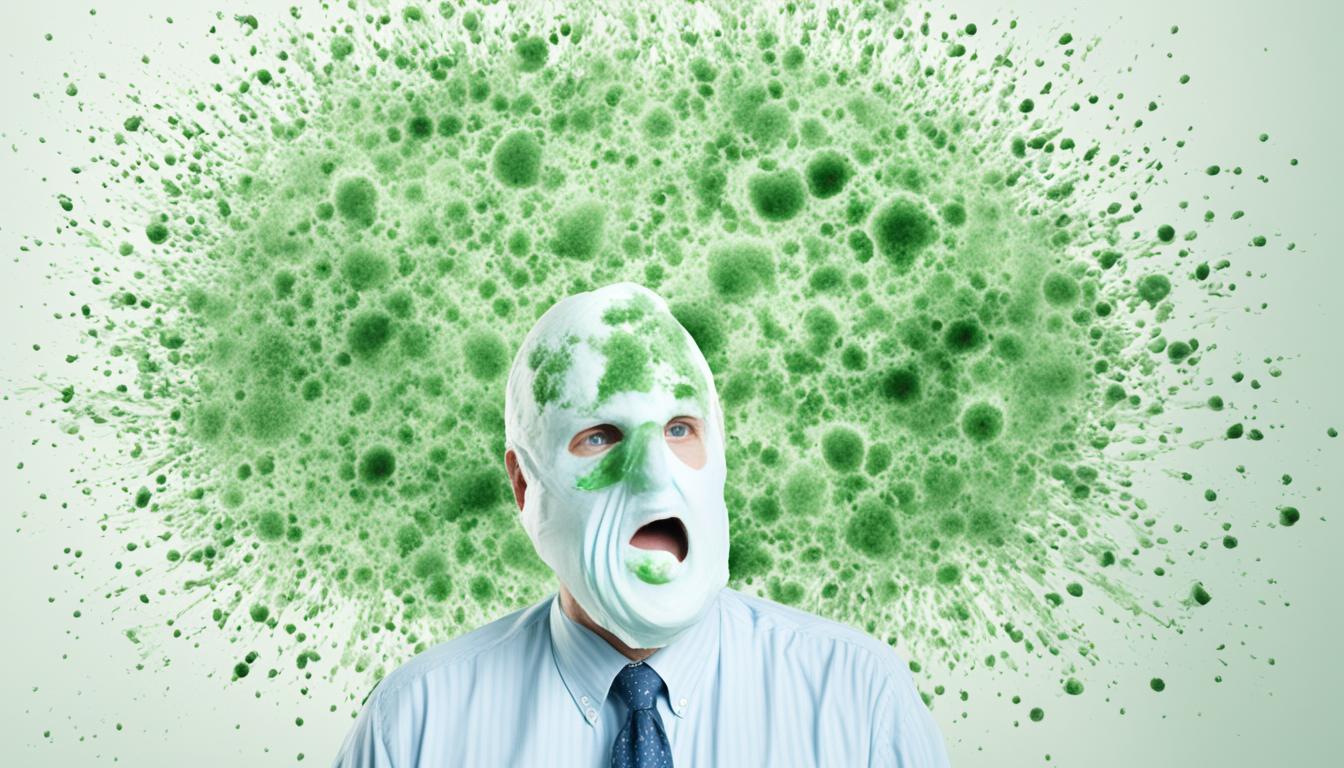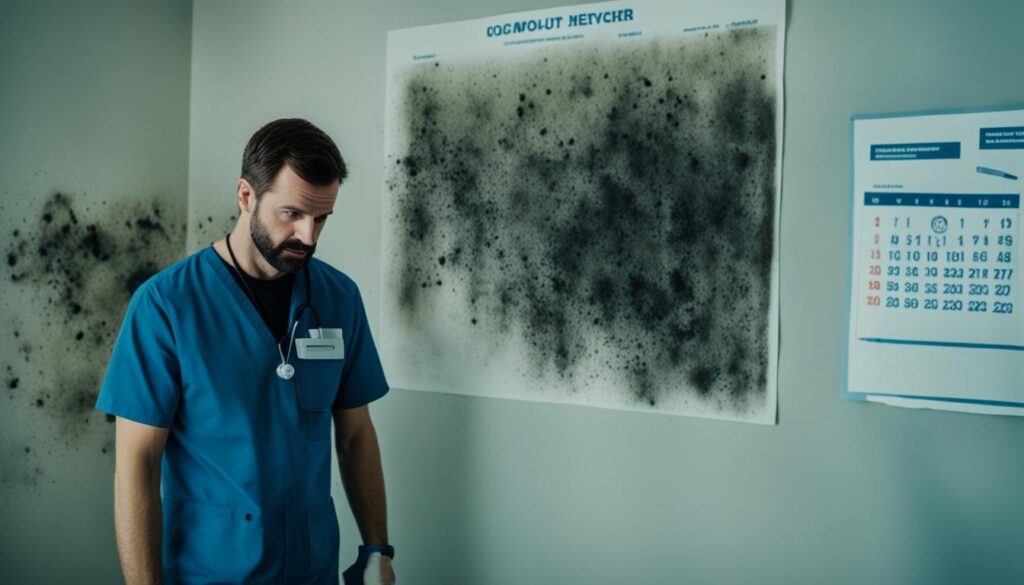
Mold Exposure Symptoms: Signs of Illness to Watch Out
Mold exposure can have serious health implications, and it is essential to be aware of the symptoms that may indicate an illness caused by mold. Whether you are living in an older home or have recently experienced water damage, knowing the signs to watch out for can help you take appropriate action and protect your well-being.
Mold-related symptoms can vary from person to person, but there are some common indicators that you should be cautious of. These may include respiratory issues such as coughing, wheezing, and difficulty breathing. Allergic reactions like sneezing, itchy eyes, and skin rashes can also be signs of mold exposure. In some cases, individuals may experience fatigue, headaches, and even cognitive problems.
If you or someone you know is experiencing any of these symptoms, it is vital to seek medical assistance and professional help. Mold exposure can have long-term health effects and should not be taken lightly. Early intervention and proper remediation are crucial in preventing further complications.
Knowing when to seek help for mold-related health issues is essential. If symptoms persist, worsen, or if you have pre-existing conditions that can be exacerbated by mold exposure, it is crucial to consult with a healthcare professional. They can provide a comprehensive evaluation of your health and guide you in seeking appropriate treatments.
Remember, your health should always be a priority. Identifying and addressing symptoms of mold exposure promptly can prevent further health complications. If you suspect mold in your home, consider contacting Fix Mold Miami, Florida’s Highest Rated In Mold Assessments, Prevention, and Remediation. Their team of experts can assess the situation and provide the necessary guidance and solutions to keep your home safe and healthy.
Key Takeaways:
- Knowing the symptoms of mold exposure is crucial for identifying potential health issues.
- Common symptoms include respiratory issues, allergic reactions, fatigue, and headaches.
- If you experience these symptoms, seek medical assistance and professional help.
- Early intervention and proper remediation can prevent further complications.
- Consult with a healthcare professional if symptoms persist or worsen.
Common Symptoms of Mold Exposure
When exposed to mold, individuals may experience a variety of symptoms that can range from mild to severe. Recognizing these common symptoms is crucial in identifying potential mold-related health issues and seeking appropriate help. Here are the most frequently observed symptoms:
- Respiratory problems: Difficulty breathing, wheezing, coughing, and chest congestion are common respiratory symptoms associated with mold exposure. These symptoms may worsen in individuals with pre-existing respiratory conditions such as asthma or allergies.
- Allergic reactions: Mold spores can trigger allergic reactions, leading to symptoms like sneezing, runny or stuffy nose, itchy eyes, and skin irritation. These allergic reactions can vary in intensity and may persist or worsen over time.
- Headaches and fatigue: Mold exposure can cause persistent headaches and chronic fatigue. These symptoms can significantly impact an individual’s daily life and productivity.
- Nausea and gastrointestinal issues: Some people may experience digestive problems, including nausea, vomiting, diarrhea, and abdominal pain, as a result of mold exposure.
- Neurological symptoms: In rare cases, mold exposure can lead to neurological symptoms such as memory problems, difficulty concentrating, dizziness, and numbness or tingling sensations.
- Skin rashes: Contact with mold or its spores can cause skin rashes and irritation. These skin symptoms may be localized to the exposed area or spread across the body.
It is important to note that symptoms may vary from person to person, and some individuals may be more sensitive to mold than others. Additionally, the severity of symptoms can depend on factors such as the duration and intensity of exposure, the type of mold present, and an individual’s overall health.
“Being aware of these common symptoms of mold exposure is essential for early detection and intervention. If you experience any of these symptoms and suspect mold as a potential cause, it is crucial to address the issue promptly to avoid further health complications.”
It is always recommended to consult with a healthcare professional if you experience persistent or worsening symptoms related to mold exposure. They can guide you in appropriate testing, diagnosis, and treatment options.

| Symptom | Description |
|---|---|
| Respiratory problems | Difficulty breathing, wheezing, coughing, and chest congestion. |
| Allergic reactions | Sneezing, runny or stuffy nose, itchy eyes, and skin irritation. |
| Headaches and fatigue | Persistent headaches and chronic fatigue. |
| Nausea and gastrointestinal issues | Nausea, vomiting, diarrhea, and abdominal pain. |
| Neurological symptoms | Memory problems, difficulty concentrating, dizziness, and numbness or tingling sensations. |
| Skin rashes | Skin rashes and irritation. |
When to Seek Help for Mold-Related Health Issues
Mold-related health issues can range from minor discomfort to more severe symptoms that require prompt medical attention. It’s important to be aware of the signs that indicate when it’s crucial to seek help. Here are some situations in which professional assistance should be sought:
1. Persistent Symptoms
If you or someone in your household is experiencing persistent symptoms that worsen over time, it is recommended to seek help. Common health issues related to mold exposure include respiratory problems, such as coughing, wheezing, or shortness of breath, as well as allergic reactions like sneezing, itching, or skin rashes. When these symptoms persist and disrupt your daily life, it’s important to consult a healthcare professional.
2. Pre-existing Health Conditions
Individuals with pre-existing health conditions, such as asthma, allergies, or weakened immune systems, are more susceptible to the adverse effects of mold exposure. If you fall into this category, it’s crucial to monitor your symptoms closely and seek medical assistance promptly if you experience any worsening of your condition or new symptoms that may be related to mold exposure.
3. Visible Mold Growth
If you notice visible mold growth in your home, it’s essential to take immediate action and seek professional help. Mold can spread rapidly and release harmful spores into the air, exacerbating health issues. A professional mold remediation service can assess the extent of the mold problem, identify the underlying cause, and safely remove the mold to prevent further health risks.
Remember, mold-related health issues should never be taken lightly. Seeking professional help ensures that the proper steps are taken to address the problem effectively and safeguard your health and well-being.

4. Quotes:
“Ignoring mold-related health issues can have serious consequences for your respiratory system and overall health. If you suspect mold exposure, it’s better to be safe than sorry and seek professional help as soon as possible.” – Dr. Emily Wilson, Allergist
By recognizing the signs and knowing when to seek help, you can take proactive steps to protect yourself and your family from the potential health risks associated with mold exposure.
Conclusion
In conclusion, being aware of the symptoms of mold exposure is crucial for safeguarding our health. Mold can lead to a wide range of health issues, including respiratory problems, allergic reactions, and other physical symptoms. By recognizing these signs of illness, we can take appropriate action to protect ourselves and our loved ones.
It is important to remember that mold-related health issues should not be taken lightly. If you experience severe or persistent symptoms, it is imperative to seek professional help and medical assistance. Mold-related illnesses can have long-term impacts on our well-being, and early intervention is key to preventing further complications.
If you suspect mold in your home or workplace, consider contacting Fix Mold Miami. As Florida’s highest-rated provider of in-mold assessments, prevention, and remediation, they offer comprehensive services to address mold-related concerns. Their team of experts can conduct thorough assessments, provide effective prevention strategies, and offer professional mold remediation solutions. Don’t hesitate to reach out to Fix Mold Miami for reliable and efficient mold assessment services.
Protecting ourselves from mold exposure starts with understanding the symptoms and taking them seriously. By staying proactive and seeking professional assistance when needed, we can create a healthier and safer environment for ourselves and our families.




